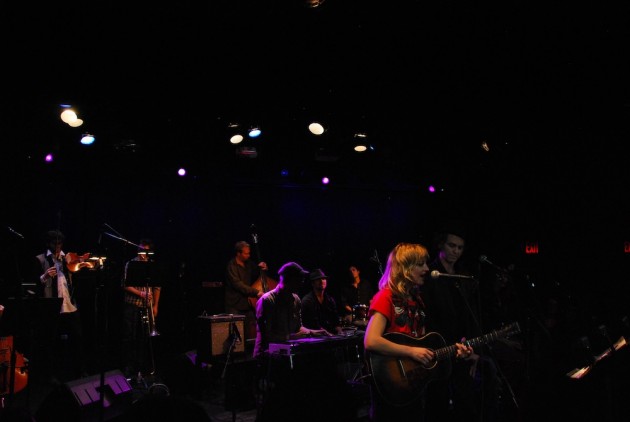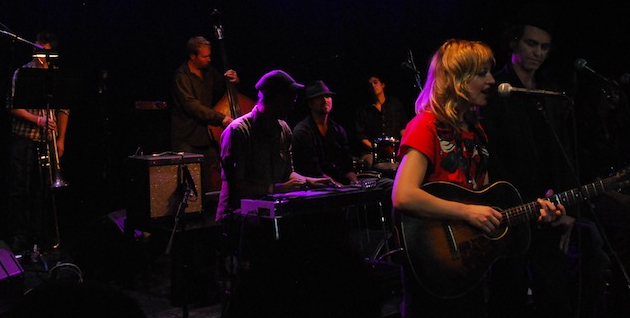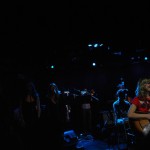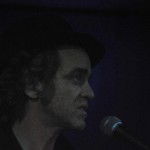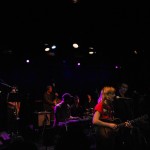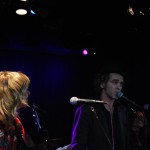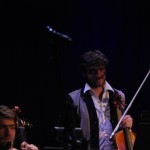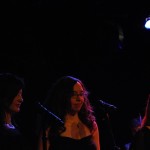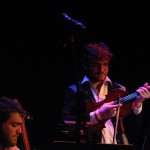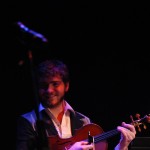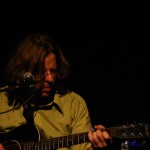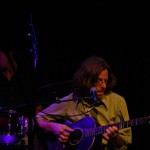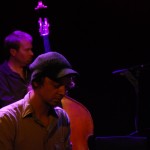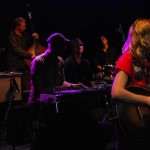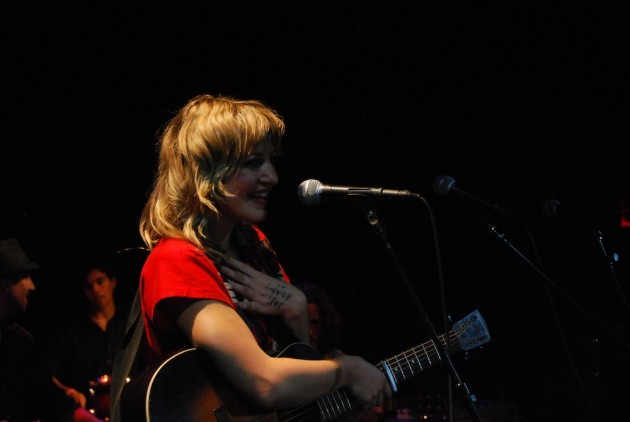
Anais Mitchell’s 2010 effort, Hadestown, was nothing if not ambitious. While concept records still exist in today’s musical climate, few of them come from the realm of folk rock, and even fewer would have the audacity to refer to themselves as a “folk-opera”, but such was Mitchell’s endeavor. Birthed first as a stage show in her home state of Vermont, Hadestown tells the story of Orpheus and Eurydice, but set in a post-apocalyptic depression era America. If the concept itself wasn’t ambitious enough, Mitchell was able to draw some high powered individuals to portray the roles for that recorded version. Bon Iver’s Justin Vernon sang the Orpheus role, Ani DiFranco sang Persephone, and the venerable Greg Brown made an incredible turn as the miserly Hades. It would have been easy for such a high concept project to fall flat on its face, but Hadestown did nothing of the sort. Mitchell’s incredible songwriting and wordplay allowed this well known tale to be told in a fresh way without coming across as over the top or schtick-y.
Last night at Le Poisson Rouge, we were treated to an opening set from Dollar General, a band apparently comprised of members of the Hadestown orchestra. Michael Chorney, who fronted Dollar General and seemed to direct the majority of the musical proceedings during the main event, has a voice not too dissimilar from smooth folkster A.A. Bondy, though the music behind him came across as much more rootsy and full. Though the music was still primarily acoustic guitar based, the accompaniment on pedal steel and upright bass made for an interesting and pleasant turn on the same sort of apocalyptic folk that Bondy and the like often provide. It sounded mostly like the mellower moments of Hadestown, perhaps unsurprisingly, but Chorney’s songwriting voice is distinct enough from Mitchell’s that it provided some variety to a night that could have otherwise become stale.

At the end of Dollar General’s set, Chorney mentioned that they were about to “take a brief intermission and then perform an opera.” I simply wasn’t prepared for the magnitude of the proceedings that would follow. Mitchell referred to the setup of the show as a sort of “radio novella” version of Hadestown, though that somehow still implies that this wasn’t a full-on production in a way that many shows weren’t. There were 16 people on stage throughout the whole set, and often with such a large number of people some are pushed to the back of the mix, but each was given their chance to shine. Nearly every musician was given a chance in the spotlight, and each singer had a song that highlighted their voice in a way that wasn’t clear in the recorded version of the album. This was perhaps most evident in last night’s rendition of “Why We Build The Wall.” This was Hades first turn to take a step forward for the night, and though Greg Brown’s vocal take on the recorded album is menacing, it isn’t quite musical. I almost prefer Tim Gearan’s take on the role last night. His voice gave emotional content to Hades character, rather than just bowel rattling vocal bass.
Something that came across in a live setting that isn’t entirely apparent on the album is the movement of the vocals. Many of the lines that I took for granted as part of Mitchell’s Eurydice character were often provided by The Fates, played last night by vocal group Sometimes Why. Their harmonies added much to nearly every song. Though every vocalist on stage, and in the crowd during “Way Down Hadestown,” their harmonic contributions truly allowed the rootsy stomp of the song to turn into something entirely special.
Also of note are a few of the other character performances. Mitchell herself was outstanding. Her take on Eurydice, obviously honed by over a year of live performance, was pretty much flawless. Vocally and emotionally she just seemed entirely involved in her character, and her ode to Orpheus during the finale “I Raise My Cup To Him”, which always came off contrived on record, here seemed earnest and wholly involved.
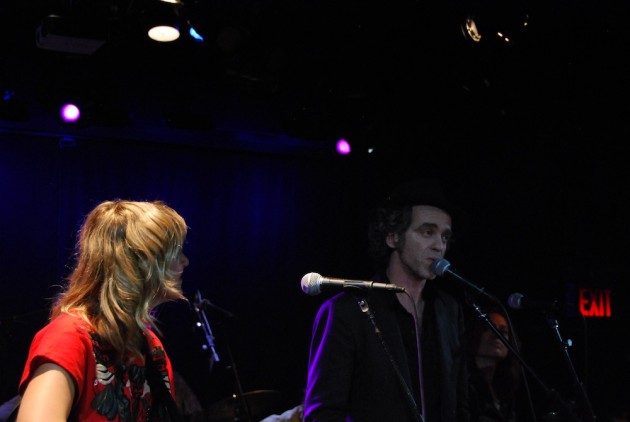
Added as a last minute special guest, Ani DiFranco’s reprisal of her recorded role as Persephone was as good as you could expect. Though one of the smaller roles in the production, her spotlight song “Our Lady Of The Underground” seemed a crowd favorite, and ended up a highlight of the night. I think there’s something to that. It seemed like the more voices that were involved, the more affecting the song became, and though many songs featured at least seven singers on microphones, it was when the crowd got in on the act that the the night became truly special.
The only real complaint that I had, and it’s more a casting complaint than anything, is in the choosing of Sean Hayes for the role of Orpheus. Though his take on the character was emotional and full, and he did a great job of capturing the plaintive lover look, Vernon’s take on the album is just so much more inspired. It may come down to the fact that almost no one can touch Vernon vocally, but every time he stepped to the microphone I wished it was Vernon and not Hayes. That wasn’t much of a drawback though, he filled the role well enough, just a bit was left wanting in that regard.
And then, it was over. It was an incredible production, one often not seen outside of the theater world, and one certainly not seen in venues like Le Poisson Rouge often enough. The work that Mitchell and company put in last night put a lot of four-piece indie rock bands to shame, and they were nothing but smiles as they streamed off the stage.
They returned triumphantly to take on an update of the 1930’s labor movement song “Whose Side Are You On?,” led by DiFranco, but it seemed so entirely disconnected from what had happened that night that I am respectfully trying to forget it. Something just felt wrong moving from the incredible piece of art that had happened just moments before to the blatant political nature of what followed. There were talks of DiFranco leading a march to Washington Square Park while playing popular American folk songs, an idea that while special, took the focus off of the incredible spectacle that we had just witnessed. I, for one, headed off into the night with my memories of the untouchable performance intact and untainted.
